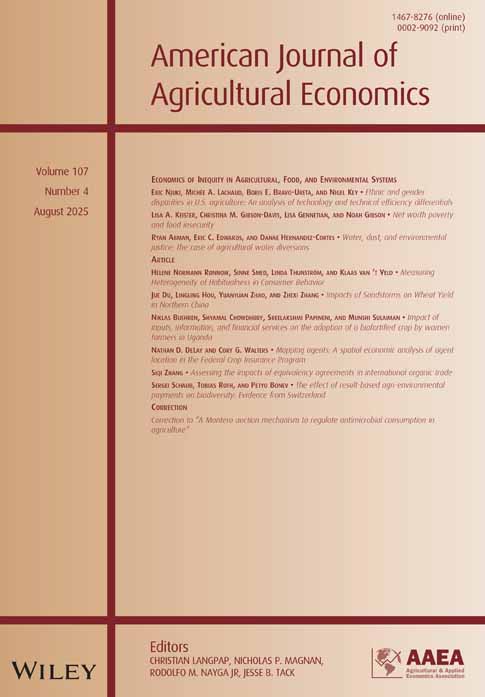Unilateral Resource Management in a Two-Country General Equilibrium Model of Trade in a Renewable Fishery Resource
Senior authorship is equally shared.
The authors thank Steve Buccola, Jim Cornelius, David Ervin, Rognvaldur Hannesson, Mike V. Martin, Raymond Mikesell, Steve Polasky, James Reinmuth, Charles Vars, and seminar participants in the Department of Economics at Portland State University, the Norwegian College of Fishery Science at the University of Tromso, conferences of the International Institute of Fisheries Economics and Trade, the Western Economic Association, and the American Agricultural Economics Association for their helpful comments, discussions, and suggestions regarding earlier drafts of this paper. They also thank two anonymous referees and Kathleen Segerson, an editor of the Journal, for valuable suggestions. The authors are responsible for any errors.
Abstract
We explore the effects of free trade in a renewable natural resource between two countries in the presence of incomplete property rights. While resource management by one country may benefit one or both trading partners, we demonstrate that resource management by only one of the partners may reduce welfare for both, when compared to the case in which neither manages its resource sector. These trade-induced losses may be reduced through import tariffs and production subsidies on the resource good or by permitting harvest beyond the rent-maximizing level. Our preliminary work suggests that the World Trade Organization (WTO) and North American Free Trade Agreement (NAFTA) policy makers should not always insist on free trade and resource management. Rather, they must pay careful attention to the particular relationships between trade conditions and natural resource policies among trading nations.




